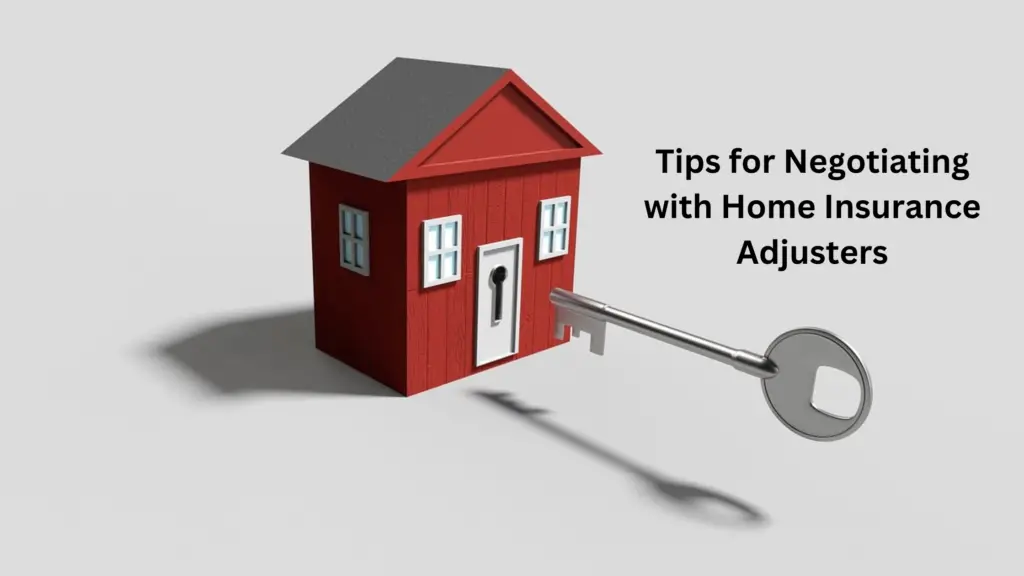Introduction to Home Insurance Adjusters
When disaster strikes your home, the aftermath can be overwhelming. Between dealing with repairs and navigating insurance claims, it’s easy to feel lost in the chaos.
Enter the home insurance adjuster—your designated guide through this complex process. But who are these adjusters? Are they on your side or simply working for the insurance company’s bottom line? Understanding their role is crucial, especially if you want to maximize your claim.
This blog reveals some lesser-known tactics that home insurance claim adjusters use and how you can effectively respond to them. By arming yourself with knowledge about their strategies, you’ll empower yourself during negotiations and ensure you get what you deserve when facing a loss at home.
Let’s dive into the world of home insurance adjusters and uncover those secret tactics!
The Role of Home Insurance Adjusters
Home insurance agents are critical to the claims process. These are the experts whose job is figuring out how much pay to give. They are the key people you talk to at the insurance company when something wrong happens.
These adjusters determine the property loss by examining the damaged areas and gathering evidence. They also take pictures, get quotes for repairs, and sometimes consult experts for more information. Their job is to ensure that claims are true and fair.
Adjusters also review the policy’s terms to determine what it covers and what it doesn’t. They can use this information to make smart choices about what your policy will cover.
Their knowledge can have a significant effect on how your claim turns out. An expert reviewer can speed up the process, while a new one may take longer or be more challenging to get paid. To get around in this complicated world, homeowners need to know what their job is.
Tactics Used by Home Insurance Adjusters
Different strategies used by home insurance adjusters could surprise homeowners. One often-used tactic is to minimize the damage’s scope. Their emphasis on surface difficulties might cause them to ignore deeper concerns, affecting your claim.

Another strategy is to ask them top questions throughout their research. This strategy seeks to guide discussions in a way that advances the insurer’s bottom line instead of fairly evaluating the circumstances.
Many times, adjusters also depend on time pressure. They want you to accept less than you deserve by establishing urgency, thinking it’s better than waiting longer for a fix.
They will also usually use earlier claims or industry standards as benchmarks. Without appropriate awareness of their policy and rights, this approach can make it challenging for homeowners to bargain successfully. Knowing these strategies prepares you with the tools to negotiate your claim procedure boldly.
How to Handle Home Insurance Adjusters
Dealing with house insurance adjusters may be frightening. The secret is to be calm and orderly all through the procedure. Start by recording anything connected to your claim. Valuable tools include photos, receipts, and repair estimates.
Welcome the adjuster kindly, but keep a professional distance. Share the required facts, not too specific details on your circumstances or feelings.
Give great attention to what they say. This will enable you to relate to their viewpoint and react suitably when required. If anything seems unclear, ask questions; clarity improves communication.
Note everything, including dates and subjects covered, throughout all contacts. This record can be helpful later, should arguments develop over the processing of your claim.
Be cautious yet patient; follow up often on your claim status without appearing unduly nervous or demanding. In many cases, a mix of professionalism and tenacity produces superior results.
Tips for Negotiating with Home Insurance Adjusters
Negotiating with a home insurance claim adjuster calls for preparation. Compile any pertinent records, including pictures of damage, repair quotes, and any letters you have sent your insurance.

During conversations, keep calm and businesslike. Though they follow policies established by their firms, adjusters can use their discretion in claims. This implies that one may make a difference by being courteous yet assertive.
Present your point. Support your stance with the facts you have gathered without bombarding them with extraneous data.
Never hesitate to probe their assessments or procedures. Knowledge provides you leverage.
If called for, be patient and ready to compromise. Negotiations are usually not one-sided; rather, reaching common ground will result in a good outcome for all the engaged parties.
Common Mistakes to Avoid When Dealing with Home Insurance Adjusters
Not keeping records of everything is a big mistake. You might need help making your case if you keep good records. Take pictures and write down what people say.
Not being ready for the adjuster’s visit is another mistake. Know your policy inside and out and have all the information you need. In this way, you prove that you mean what you say.
Don’t say or assume things based on your emotions. Refrain from guessing what happened or how much the damage is worth; stick to the facts.
Also, it’s important to avoid jumping at an adjustment’s first offer. Find out how much you’ve lost before you agree to a deal.
If you need it, remember how important it is to get skilled help. Hiring a public adjuster can level the playing field when dealing with the sneaky ways home insurance claim adjusters do their jobs.
Pros and Cons
Navigating the world of home insurance adjusters comes with its own set of advantages and drawbacks.
Additionally, these experts can help speed up the claims process. They know all the details of the rules and can help you through challenging situations.
That being said, not all encounters go smoothly. Adjusters may care more about the bottom line of their business than giving fair compensation for losses. As a result, talks may become tense and unfair.
One more benefit is that they can give you helpful information about what your insurance covers. This information gives people the power to choose whether to fix something or get a new one.
However, there is a risk when people share less information during conversations. What you say could be used against you in the claim process.
When working with adjusters, it’s important to understand both sides to prepare you for anything that might happen.
Conclusion
It can be difficult to get home insurance. Knowing the tricks that insurers use can give homeowners the tools they need to fight for their rights effectively.
Having information makes a big difference in how things turn out. Homeowners should learn about their insurance plans and what could happen if they need to make a claim.
Getting to know your insurer may also help you talk to them more efficiently, which could make the claims process go more smoothly. Trust can go both ways when people are honest and treat each other with care.
By being strategic, you can ensure that you’re ready for any conversations that might come up. Carefully write down everything related to your claim.
Every encounter is a chance to learn and get better. When people know what to expect from home insurance agents, they are less likely to be scared and can face problems head-on.
FAQ
Navigating the world of home insurance claims can be daunting. Understanding how adjusters operate is essential. Here are some frequently asked questions that might provide further clarity.
What is a home insurance claim adjuster?
A home insurance claim adjuster investigates and evaluates policyholder claims after property damage or loss has occurred. They determine whether a claim is valid and, if so, how much compensation should be awarded.
How do I prepare for an encounter with an adjuster?
Gather all relevant documentation before your meeting. This includes photographs of damages, repair estimates, and any correspondence you’ve had with your insurer. Being organized will help you present your case more effectively.
Can I negotiate with my home insurance adjuster?
Absolutely! Negotiation is often part of the process when dealing with claims. Be prepared to discuss your findings regarding damages or losses thoroughly.
What tactics should I watch out for from an adjuster?
Adjusters may use tactics such as lowball offers or pressure techniques to settle quickly. Please familiarize yourself with these strategies to avoid falling into their traps.
Should I hire a public adjuster?
Hiring a public adjuster could be beneficial if you feel overwhelmed by negotiations or believe your claim deserves more than what’s offered. They work on behalf of the policyholder rather than the insurer.
Understanding these elements can empower you to effectively manage home insurance claim processes and ensure you receive fair treatment throughout this challenging experience.

